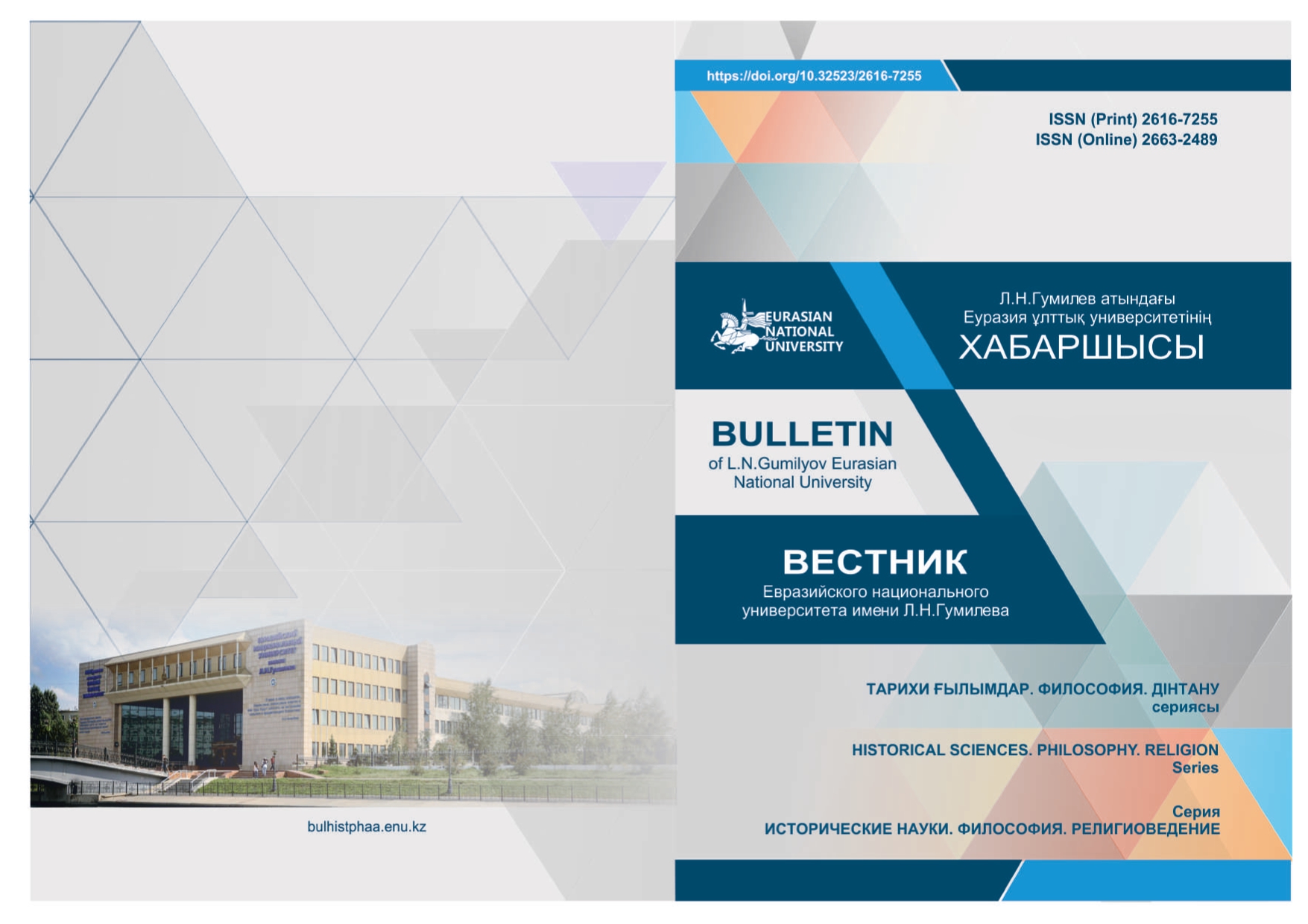Social and philosphical views in the works of Al Farabi and Al Gazali
Views: 254 / PDF downloads: 295
DOI:
https://doi.org/10.32523/2616-7255-2023-142-1-225-236Keywords:
history of philosophy; human thinking activity in philosophy; education; art; religious anthropology; al-Farabi; al-Ghazali; harmony; socio-ethical values.Abstract
The social content of human activity, the perfection of the person, the spiritual worldview of a person based on the ethical values of the Islamic religion and the evaluation of time in the philosophical views of Al-Farabi and Al-Ghazaliarticle are presented in the article. There is a concept of intelligentsia that lost its relevance in science. Al-Farabi's intellectual activity in recognizing his own identity, recognizing the truth through knowledge, recognizing the truth of oneself and the surrounding world through Al-Ghazali's methods of mystical recognition of the secret of the Creator were considered. The content of the article consists of the activity of the mind and forms of thinking, the religious anthropological characteristics of a person, the types of society and the needs of its management, the concepts of religious context and business culture. The attention was paid to the methods of determining personality perfection in the creativity of thinkers. In particular, al-Farabi's benevolent city art, the concept of a perfect leader, the needs inherent in the management of society proposed by Al-Ghazali, and Hakim Abay's concept of a complete person were compared. The ethical values and morality of Al-Ghazali in the upbringing of generation are presented. This direction was widely studied in the works of scientists such as A.Kh. Kasymzhanov, A. Korben, Garifolla Yesim, Zh.A. Altayev, D. Kenzhetai, B. Satershinov, N. Seitakhmetova, A.D. Kurmangaliyeva, Zh. Sandybayev, Khilmi Ziya Ulken.
Downloads

Downloads
Published
How to Cite
Issue
Section
License
Copyright (c) 2023 Bulletin of L.N. Gumilyov Eurasian National University. Historical Sciences. Philosophy. Religious studies series.

This work is licensed under a Creative Commons Attribution-NonCommercial 4.0 International License.







